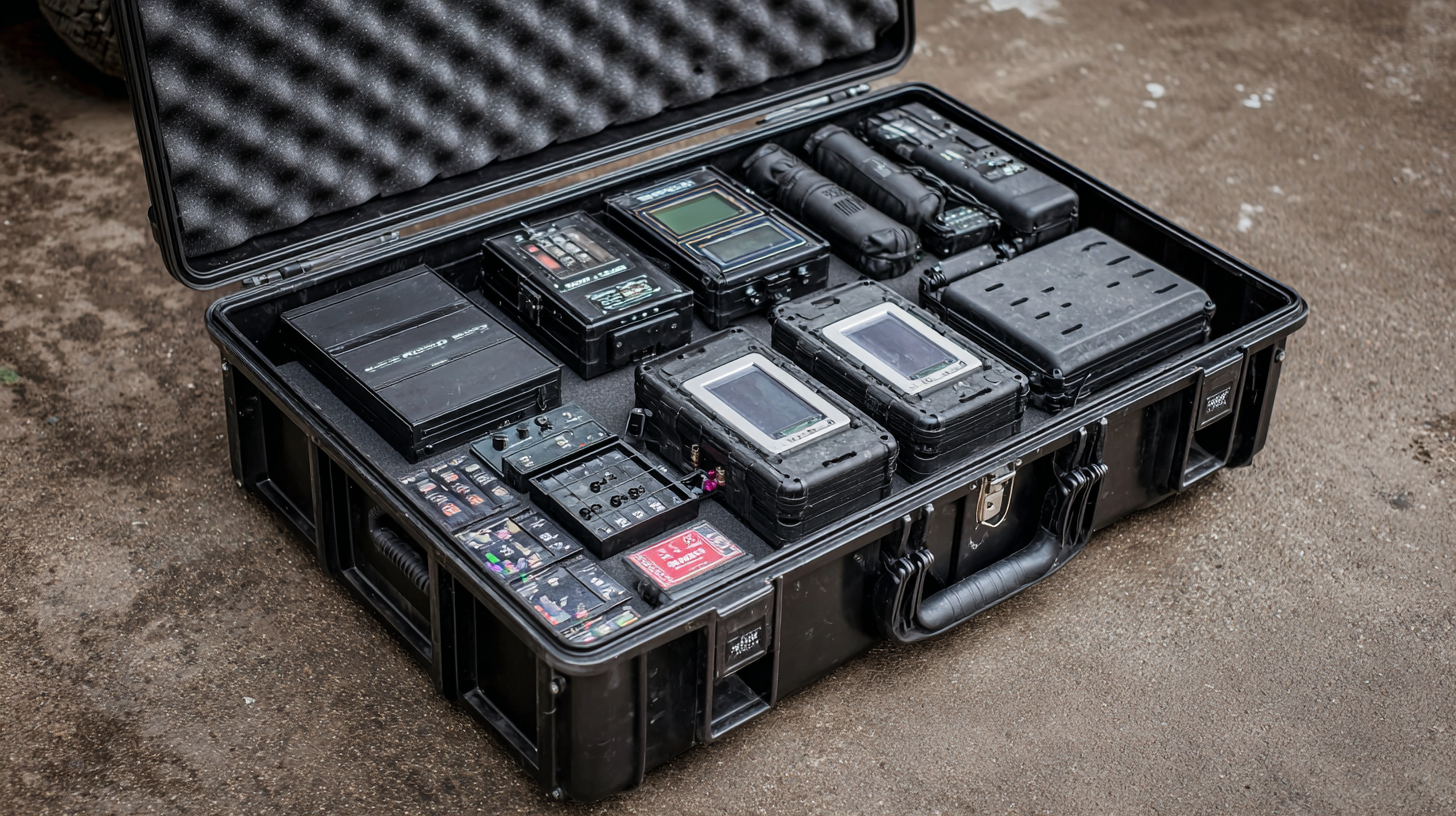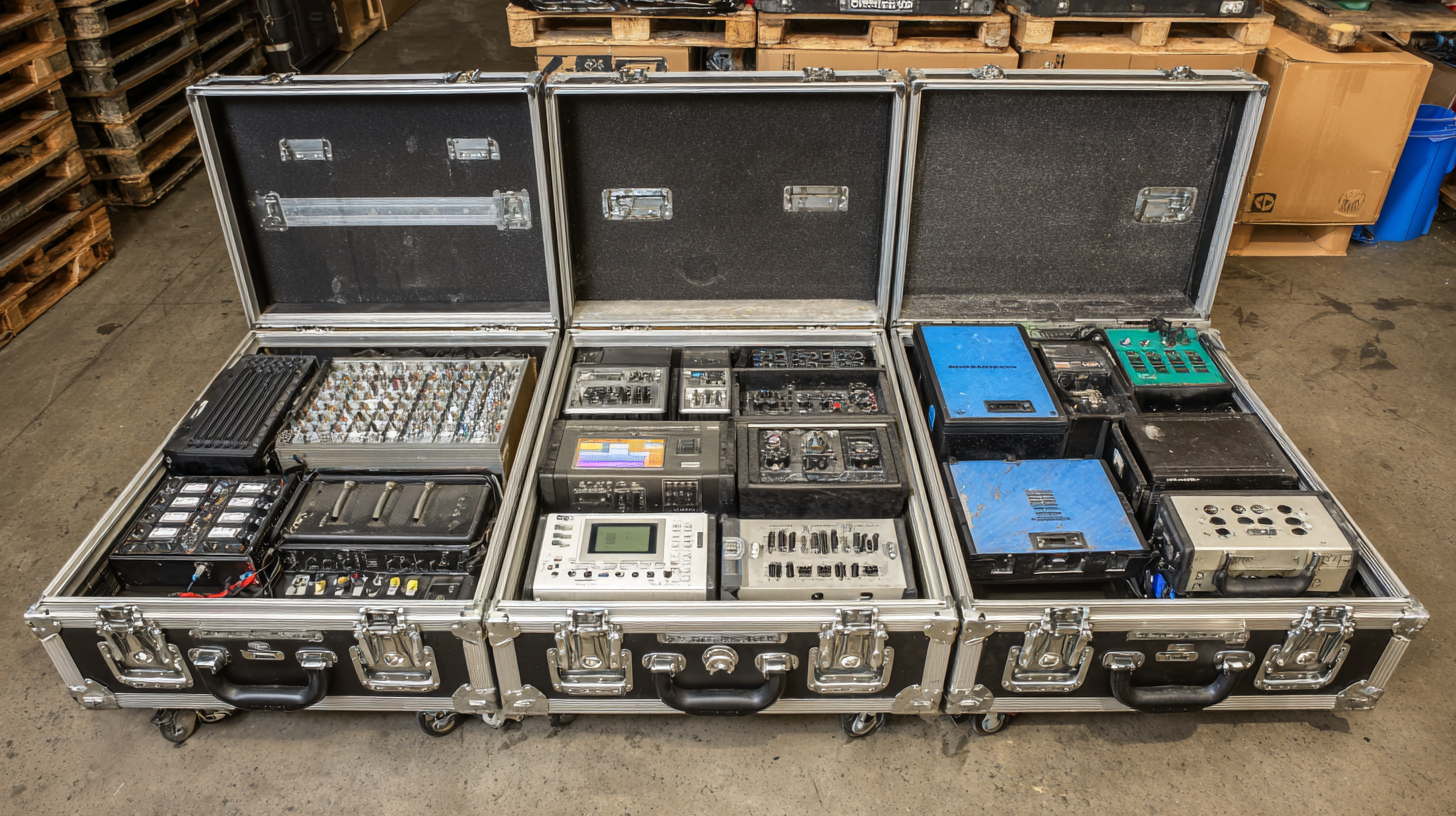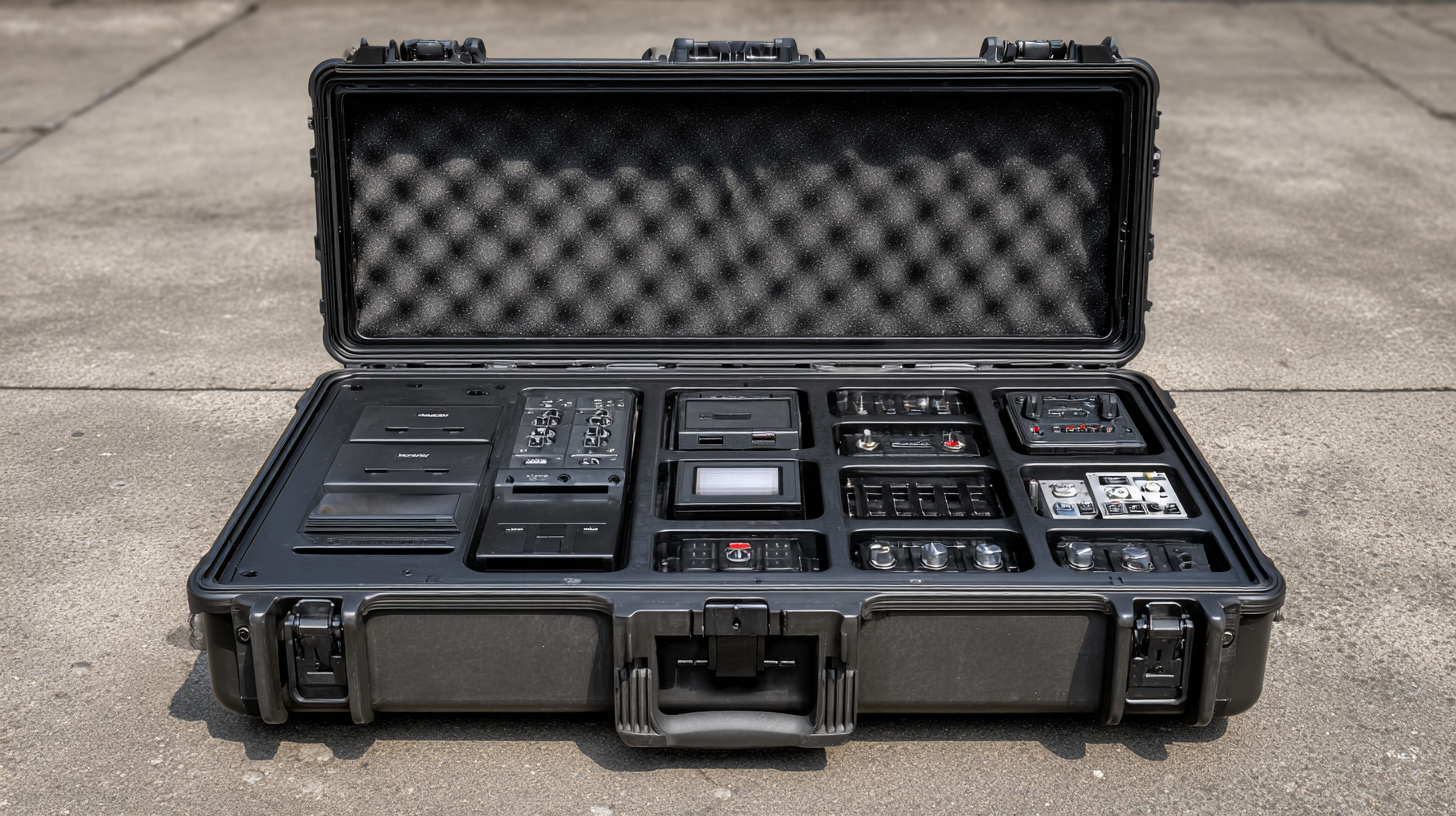Leave Your Message
In an industry where mobility and protection of valuable equipment are paramount, the choice of Road Case Hardware has a significant impact on performance and longevity. According to a recent report by MarketsandMarkets, the global market for road cases is projected to reach $1.6 billion by 2026, indicating a growing demand for quality hardware solutions that can withstand the rigors of transportation. With various options available, from standard latches to custom-designed trays, it is essential for global buyers to explore unique alternatives that not only meet their functional needs but also enhance the aesthetics and durability of their cases. This ultimate guide will delve into innovative hardware options, offering insights and expert recommendations to help professionals make informed decisions and elevate their road case setups to new heights.

In the fast-paced world of touring and live events, the demand for innovative road case designs is firmly rooted in the increasing diversity of equipment needs across the industry. According to a recent report by Grand View Research, the global road case market is expected to reach $1.5 billion by 2023, driven by the growing need for advanced protective solutions for various types of equipment, including audio, video, and lighting gear. This surge underscores the necessity for manufacturers to offer unique alternatives that cater to a wide range of user requirements, ensuring both protection and functionality.
Modern road cases are now being designed with versatility in mind, incorporating features such as modular setups that can accommodate different equipment sizes and types. Research from the Professional Audio Manufacturers Alliance (PAMA) indicates that over 70% of professionals prioritize adaptability in their road cases, reflecting a shift towards multifunctional designs. This evolution in product offerings not only enhances the user experience but also extends the life span of valuable equipment, making it essential for global buyers to explore these innovative solutions that align with their specific needs.

When it comes to transporting delicate gear, traditional road case hardware may not always be the optimal choice. For global buyers seeking innovative alternatives, exploring unique hardware options can significantly enhance gear protection while also providing customization possibilities. Innovative materials like high-density polyethylene (HDPE) and aluminum extrusions are gaining popularity due to their durability and lightweight characteristics. These materials not only withstand the rigors of travel but also offer an aesthetic appeal that complements any gear setup.
Additionally, integrating smart locking mechanisms and protective padding can elevate the level of security and assurance during transit. For instance, magnetic closures or combination locks provide convenience without sacrificing safety, while custom foam inserts mold perfectly around equipment, minimizing movement and potential damage. By choosing alternative hardware solutions, global buyers can ensure their gear remains safe, secure, and in pristine condition, ready for any performance or event. Embracing these modern innovations can transform how we think about gear protection and transportation, allowing for a more tailored approach to each individual’s needs.
The music and entertainment industry heavily relies on road cases to safeguard essential equipment during transport and storage. According to a recent study by IBISWorld, the demand for road cases has surged, with the market estimated to reach $250 million by 2025. These protective enclosures ensure that sensitive audio and visual gear, from microphones to mixing boards, withstand the rigors of touring. With increasing global tours and live performances, investing in quality road case hardware becomes a necessity rather than an option for artists and crews alike.
Tip: When selecting road cases, consider opting for custom designs tailored to specific equipment. This not only enhances protection but also streamlines the setup and teardown processes during shows. Furthermore, utilizing lightweight materials can significantly reduce transportation burdens without compromising durability.
Another trend observed in the industry is the adoption of smart road case technology, which allows for real-time monitoring of equipment conditions during transit. As per a report from Allied Market Research, the integration of IoT devices in road cases could enhance their security and integrity, potentially reducing loss and damage costs by up to 30% for touring companies.
Tip: Ensure that the road cases you choose have reliable locking systems and are made of shock-absorbing materials to mitigate impact. Regular maintenance checks on your equipment and its protective enclosures can prolong their lifespan and functionality, proving beneficial in the long run.
When selecting the right road case for your gear, global buyers must consider several key factors that can greatly influence both protection and functionality. First and foremost, it’s essential to assess the specific type of equipment you need to transport. Different gear, such as musical instruments, audio equipment, or delicate electronics, may require tailored case solutions. Look for road cases that offer customizable interiors, such as foam inserts or adjustable compartments, to ensure that your equipment fits snugly and is shielded from impact during transit.

Another crucial aspect to keep in mind is the material and construction of the road case. Buyers should opt for robust options made from high-quality materials, like heavy-duty plywood or reinforced plastic. Features like aluminum hardware and rubber lining can provide added durability and protection against the rigors of travel.
Additionally, consider portability; cases with wheels and comfortable handles can make transport easier, especially for those navigating airports or busy venues. With these considerations in mind, global buyers can confidently choose a road case that effectively safeguards their valuable gear while on the move.
As the demand for road cases continues to grow, so does the necessity for sustainable materials that enhance durability while minimizing environmental impact. Industry reports indicate that approximately 40% of road case buyers prioritize sustainability when selecting hardware. This shift reflects an increasing awareness within the industry about the importance of eco-friendly practices.
Innovative materials such as recycled plastics, sustainable wood composites, and bio-based alternatives are becoming popular choices among manufacturers. For instance, a recent study highlighted that using recycled aluminum in road case design not only decreases the carbon footprint by up to 30% but also ensures robust protection for sensitive equipment. Moreover, integrating natural fiber reinforced composites can enhance impact resistance, providing a longer lifespan for road cases that withstand rigorous touring demands.
The use of sustainable materials is not merely a trend but a crucial factor in maintaining competitive advantage. According to a report by the International Live Events Association, companies that adopt eco-friendly practices report a 20% increase in customer loyalty. This growing emphasis on sustainability assures that road case manufacturers must innovate and adapt to meet the expectations of global buyers who are increasingly looking for durable and responsible hardware solutions.
This chart represents the durability ratings of different materials used in road cases, rated on a scale from 1 to 10. Understanding the durability of materials like plastic, aluminum, wood, composites, and recycled materials is crucial for global buyers seeking sustainable and long-lasting solutions.
